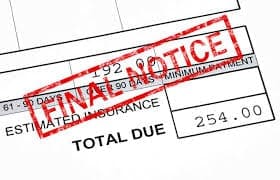
Debt Recovery Demystified: Top 5 Tips for Hiring the Right Collection Agency
Dealing with unpaid debts can be a time-consuming and frustrating process for businesses of all sizes. Hiring a collection agency can be a game-changer, helping you recover overdue funds while allowing you to focus on your core business operations. However, with so many collection agencies to choose from, it can be challenging to know which one is the right fit for your needs. In this blog post, we’ll demystify the debt recovery process and provide you with the top 5 tips for hiring the right collection agency.
Understand the Collection Agency’s Specialization
Not all collection agencies are the same. Some specialize in certain types of debt, such as medical bills or student loan debts. Others focus on collecting commercial debts. To ensure you’re getting the best possible outcome, make sure to work with a collection agency that understands the laws and regulations that apply to your specific type of debt.
Industry-Specific Expertise
Different industries have unique regulations and requirements when it comes to debt collection. Before hiring an agency, ensure they have experience and knowledge in your specific industry. An agency with expertise in your field will be better equipped to navigate the intricacies of your industry and recover debts more effectively.
Size of Debts Handled
Collection agencies may also specialize in handling debts of different sizes. Some agencies focus on recovering smaller debts, while others excel at collecting larger, more complex accounts. Choose an agency that aligns with the size and nature of the debts you need to recover.


Evaluate the Agency’s Track Record and Reputation
When evaluating collection agencies, take time to research their track record and reputation. Do a thorough search online to read reviews and feedback from other clients. Also, ask the agency for references and contact them directly to inquire about their experiences with the agency. Here are a few key things to review when choosing a collection agency:
- Success Rates
One of the most critical factors to consider when hiring a collection agency is its success rate in recovering debts. While no agency can guarantee a 100% recovery rate, a higher success rate is indicative of their effectiveness and experience.
- Customer Reviews and Testimonials
Look for customer reviews and testimonials to gauge the agency’s reputation. Positive feedback from other clients can provide valuable insight into the agency’s performance and professionalism.
- Industry Associations and Accreditations
Ensure the collection agency is a member of reputable industry associations and holds relevant accreditations. This demonstrates their commitment to ethical practices and adherence to industry standards.
Assess the Agency’s Collection Methods
The method by which a collection agency recovers debts can have a significant impact on its success rate. Ensure the agency is compliant with the law and respectful of debtors’ rights. If an agency uses aggressive tactics or fails to abide by the Fair Debt Collections Practices Act, it could ultimately do more harm than good.
Legal and Ethical Practices
It is crucial to hire a collection agency that follows legal and ethical practices. Unscrupulous agencies may use aggressive or even illegal tactics, potentially damaging your reputation and leading to legal repercussions. Research the agency’s collection methods and ensure they comply with the Fair Debt Collection Practices Act (FDCPA) and other relevant regulations.
Communication and Reporting
A good collection agency should maintain open and transparent communication with you throughout the debt recovery process. Find out how the agency will keep you updated on the status of your accounts and the frequency of their reports.


Consider Pricing and Fee Structures
- Contingency Fees vs. Flat Fees
Collection agencies generally offer two types of fee structures: contingency fees and flat fees. Contingency fees are based on a percentage of the recovered debt, while flat fees involve a fixed cost per account. Consider which fee structure best suits your needs and budget.
- Additional Costs
Some agencies may charge additional fees for services such as skip tracing or legal support. Be sure to ask about any potential hidden costs and factor them into your decision.
Verify Licensing and Insurance
One of the most important considerations when choosing a collection agency is to verify its licensing and insurance. Ensure the agency is adequately licensed and insured for professional indemnity, negligence, and cyber liability. This will protect both you and your clients in the event of an unforeseen issue or dispute.
Licensing
Collection agencies are required to be licensed in the states where they operate. Verify that the agency you’re considering is properly licensed to handle debt collections in the relevant jurisdictions.
Insurance
Ensure the collection agency carries adequate insurance, including errors and omissions (E&O) insurance. This protects both you and the agency in case of any errors or issues that may arise during the debt collection process.
Hiring the right collection agency is crucial to successfully recover your unpaid debts. By considering factors such as industry specialization, track record, collection methods, pricing, licensing, and insurance, you can make an informed decision that aligns with your business needs. In the next section, we’ll delve into the costs associated with hiring a debt collection agency, providing you with a better understanding of average pricing.


Understanding the Cost of Hiring a Debt Collection Agency
As mentioned earlier, many collection agencies charge a contingency fee, which is a percentage of the debt they successfully recover on your behalf. Contingency fees can vary widely depending on the agency, the age of the debt, and the difficulty of collection. Generally, contingency fees range from 15% to 50% of the recovered amount. For older debts or more challenging cases, the fees may be higher due to the increased effort required to collect the funds.
The Cost of Flat Fees
Some collection agencies offer a flat fee structure, charging a fixed amount per account regardless of the amount recovered. Flat fees can range from $15 to $50 or more per account, depending on the complexity and size of the debt. This option may be more suitable for businesses with a large volume of small accounts or those looking for a predictable cost structure.
Additional Costs to Consider
In addition to the primary fee structure, there may be additional costs associated with debt collection services. For example, some agencies charge extra for skip tracing (locating debtors who have moved or are evading contact), legal support, or credit reporting. Be sure to inquire about any additional fees and factor them into your overall budget when comparing agencies.
Debt recovery can be a complex and challenging process, but by following these tips and understanding the costs involved, you can hire the right collection agency to help you recover your outstanding debts. Remember to consider factors such as industry specialization, the agency’s reputation, collection methods, pricing, and licensing and insurance when making your decision. With the right agent by your side, you can improve your cash flow and focus on growing your business while leaving the debt recovery process in capable hands.
